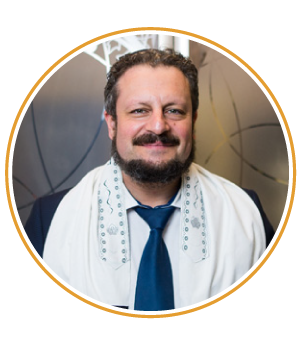 “May the Lord, the God who gives breath to all living things, appoint someone over this community to go out and come in before them, one who will lead them out and bring them in, so that the Lord’s people will not be like sheep without a shepherd”’ (Numbers 27:15-17). Our chapter presents the request of Moshe after he was instructed to take a glimpse of the Promised Land and should “be gathered to his nation”
“May the Lord, the God who gives breath to all living things, appoint someone over this community to go out and come in before them, one who will lead them out and bring them in, so that the Lord’s people will not be like sheep without a shepherd”’ (Numbers 27:15-17). Our chapter presents the request of Moshe after he was instructed to take a glimpse of the Promised Land and should “be gathered to his nation”
The Tanhuma Midrash (Pinhas 10) explains that right after Moses brought the case of the daughters of Zelophehad, he turned to Almighty with the following words regarding his successor “Would you please to appoint over them a person, who will bear with each and every one of them according to temperament”. Joshua was appointed, “to lead the people out and to bring them in” and to be the successor after Moshe (Moses), Yehoshua (Joshua) bin Nun, a man full of the spirit or in Hebrew – בּוֹ רוּחַ אֲשֶׁר אִישׁ.
We learn earlier, Joshua was the devoted servant who never left Moses. He accompanied Moses when he went to the mount of Sinai. Moses sent twelve spies to spy the land of Canaan and Joshua was one of them, and when they came back, it was Joshua and Caleb that encouraged the people that with the help of God, they could conquer the Promised Land. Therefore, both God and Moses had a number of good reasons to have Joshua stand before Elazar the priest and all the congregation, and for Moshe to give Yehoshua, the new leader and the successor, some of Moshe’ splendor.
The chapter named after Phinehas (Pinhas), starts with him, and yet the successor of Moshe became not the grandson of the high priest with hereditary priesthood Pinhas ben Eleazar, but Yoshua bin Nun. “The Torah: A Modern Commentary,” published by Rabbi Plaut first 50 years ago suggests that Moshe asked to appoint not super-human, but human, person among persons. In the book Al a –Tora, the idea of the Moshe’ successor as the person among persons was presented by Rabbi Mordechai ha-Cohen 65 years ago. Apparently I learned that from the Plaut’ Torah Russian translation, that was first presented at the WUPJ dedication of the Sandra Breslauer Center in Minsk (Центр Бейт Симха) 10 years ago.
It is not easy thing to appoint, choose, elect a leader to lead the community out and bring them back at that time and in our days. Any pre and post-election periods in many countries would be the period of tension, arguments and prayer for better life and success. However, Torah and our sages give us the lesson of choosing leaders as the humans among humans and not superhuman to solve the problem, a man or woman, full of spirit and not just intellectually gifted and physically perfect.
May the Lord, the God who gives breath to all living things help us with our choice of leaders with a human face and our aspiration to strengthen our community, with our diligence to make the world better place and carry the light of the Torah and good deeds.

The views and opinions expressed in this article are those of the author(s) and do not necessarily reflect the official policy or position of the World Union for Progressive Judaism (WUPJ).
